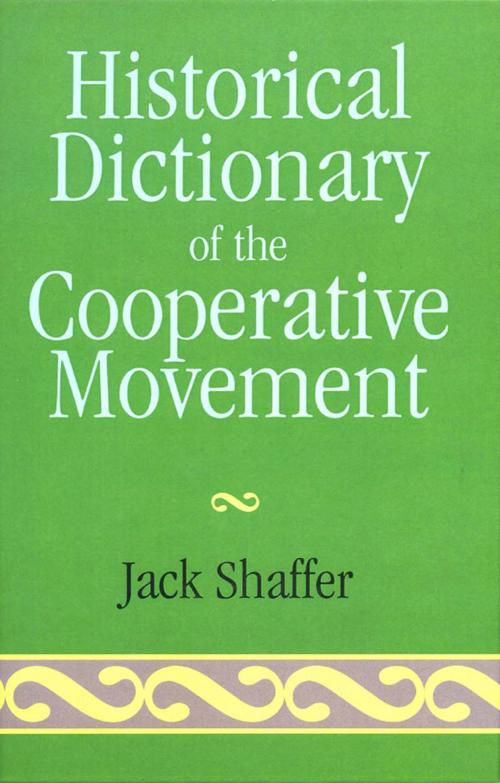Historical Dictionary of the Cooperative Movement
Nonfiction, History, Reference, Religion & Spirituality, Philosophy| Author: | Jack Shaffer | ISBN: | 9780810866317 |
| Publisher: | Scarecrow Press | Publication: | August 31, 1999 |
| Imprint: | Scarecrow Press | Language: | English |
| Author: | Jack Shaffer |
| ISBN: | 9780810866317 |
| Publisher: | Scarecrow Press |
| Publication: | August 31, 1999 |
| Imprint: | Scarecrow Press |
| Language: | English |
Cooperatives are found everywhere, doing all kinds of things. They are critical elements in the economies of a large number of countries around the world, large and small. Their affairs are carried out by elected leadership that runs the gamut from the illiterate to the scholarly. Their membership is made up of people of all socio-economic backgrounds. It is those members who, through their support and their needs, determine the successes and failures of cooperatives. But cooperatives as a popular movement will also be judged in other ways. A judgment will be made on the totality of their impact: local, national, and international. People will ask about how they helped ameliorate the economic and social problems of the dispossessed. But they will also inquire about their influence on economic systems, whether these were made more humane, egalitarian, and inclusive in their benefits because of cooperative principles and practices. Their impact on the international order will be judged collectively by how they contributed more than resolutions to peace, to justice, and to human inclusiveness. This volume provides snapshot views of the cooperative movement in all its diversity. The only single source one can consult to find so much information on the different kinds of cooperatives, significant figures, including philosophers, pioneers, officials, and leaders, and the situation in a large number of countries. With a list of acronyms, an extensive chronology, appendixes, and a comprehensive bibliography.
Cooperatives are found everywhere, doing all kinds of things. They are critical elements in the economies of a large number of countries around the world, large and small. Their affairs are carried out by elected leadership that runs the gamut from the illiterate to the scholarly. Their membership is made up of people of all socio-economic backgrounds. It is those members who, through their support and their needs, determine the successes and failures of cooperatives. But cooperatives as a popular movement will also be judged in other ways. A judgment will be made on the totality of their impact: local, national, and international. People will ask about how they helped ameliorate the economic and social problems of the dispossessed. But they will also inquire about their influence on economic systems, whether these were made more humane, egalitarian, and inclusive in their benefits because of cooperative principles and practices. Their impact on the international order will be judged collectively by how they contributed more than resolutions to peace, to justice, and to human inclusiveness. This volume provides snapshot views of the cooperative movement in all its diversity. The only single source one can consult to find so much information on the different kinds of cooperatives, significant figures, including philosophers, pioneers, officials, and leaders, and the situation in a large number of countries. With a list of acronyms, an extensive chronology, appendixes, and a comprehensive bibliography.















